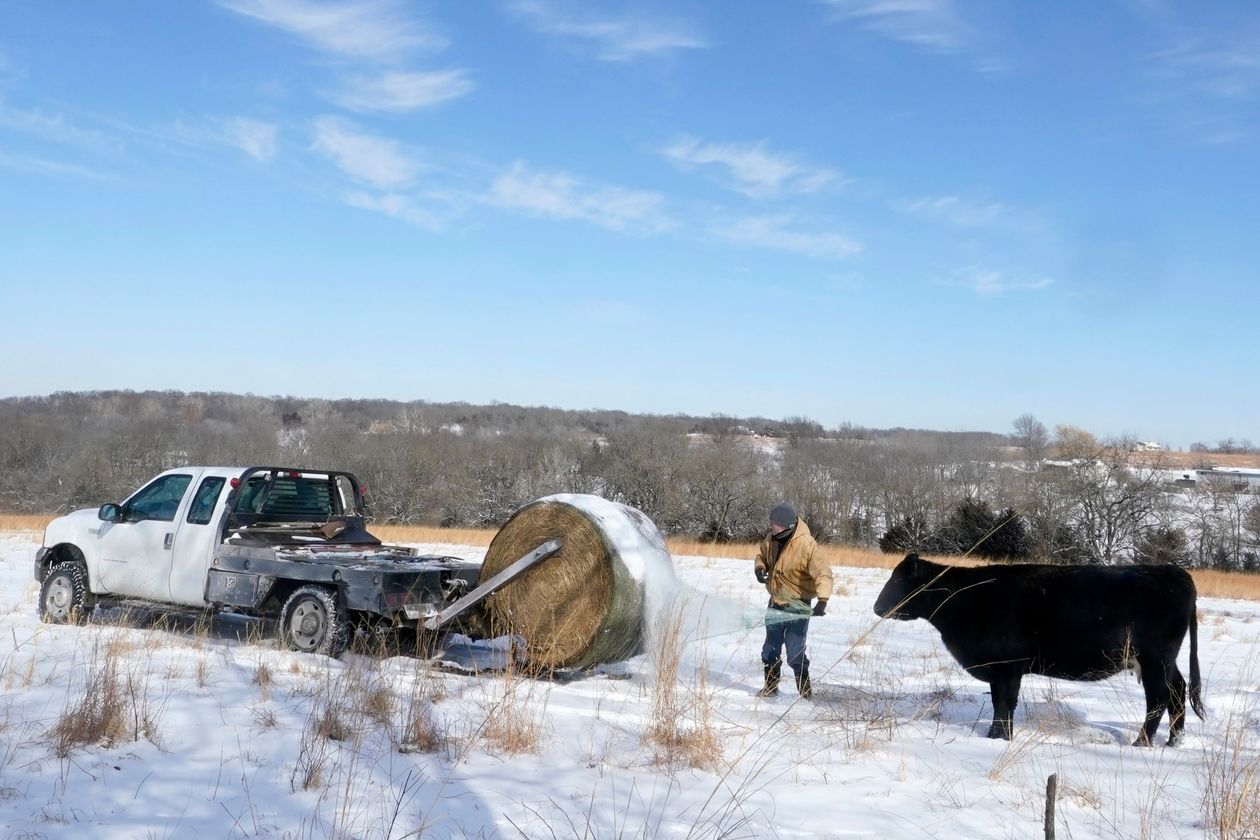Farmers From Kansas to Alabama Have Never Dealt With Weather Like This

Brutal winter weather continued to batter the U.S. agriculture industry, as companies and farmers contended with snow, ice and cold temperatures that disrupted processing, snarled transport and killed livestock across the Midwest and South
By Jacob Bunge – Wall Street Journal
Winter storms are sowing challenges from Kansas to Alabama, state and industry officials said. Energy shortages forced meat-processing plants to temporarily close, while ice buildups kept grain barges off rivers and cattle ranchers struggled to save calves born onto frozen ground in the middle of the night.
The processing and transport disruptions, as well as the loss of animal life, are projected to cost agriculture companies and farmers millions of dollars. Farmers and state agriculture officials said it remained too early to tally all the costs.
“Natural gas constraints led Cargill to shut down three Texas meat plants ““Mother Nature is a really tough business partner, and she has been pretty unforgiving here the past few days,” said Blayne Arthur, Oklahoma’s state agriculture commissioner.
The storm and its aftermath strained electrical grids, forcing rolling blackouts and the direction of natural gas supplies to residential homes. Natural gas constraints led Cargill Inc., one of the biggest U.S. beef processors, to shut down three Texas meat plants through Thursday, a spokesman said, and transportation difficulties slowed its grain and animal feed businesses elsewhere.
Arkansas-based Tyson Foods Inc., the largest U.S. meat company by sales, has temporarily suspended or scaled back operations at some locations due to employee safety concerns and energy constraints, a spokesman said. Pilgrim’s Pride Corp. , another major chicken company, suspended some operations, a spokeswoman said, and pork giant Smithfield Foods Inc. said some of its Midwestern locations were affected by power and water interruptions.
Grain companies have been affected too, with natural gas shortages leading Archer Daniels Midland Co. to slow production at some facilities, a spokeswoman said. Ice buildups on rivers forced some grain-hauling barge operators to suspend operations, said a spokeswoman for the Waterways Council Inc., a river transportation trade group.
With another storm set to drop more snow from Oklahoma to the mid-Atlantic region, agriculture officials said the effects of the sustained wintry blast could be felt for months. Mike Beam, secretary of the Kansas Department of Agriculture, said the cold snap would leave the big beef state’s cattle ranchers and meatpackers with skinnier cattle to sell and process, since livestock burn more calories keeping warm. In Oklahoma, Ms. Arthur said early estimates showed around 15% of newborn calves would be lost, taking a financial and emotional toll on ranchers.
Appeared in the February 19, 2021, print edition as ‘Meat Processing Stalled By Cold.’











